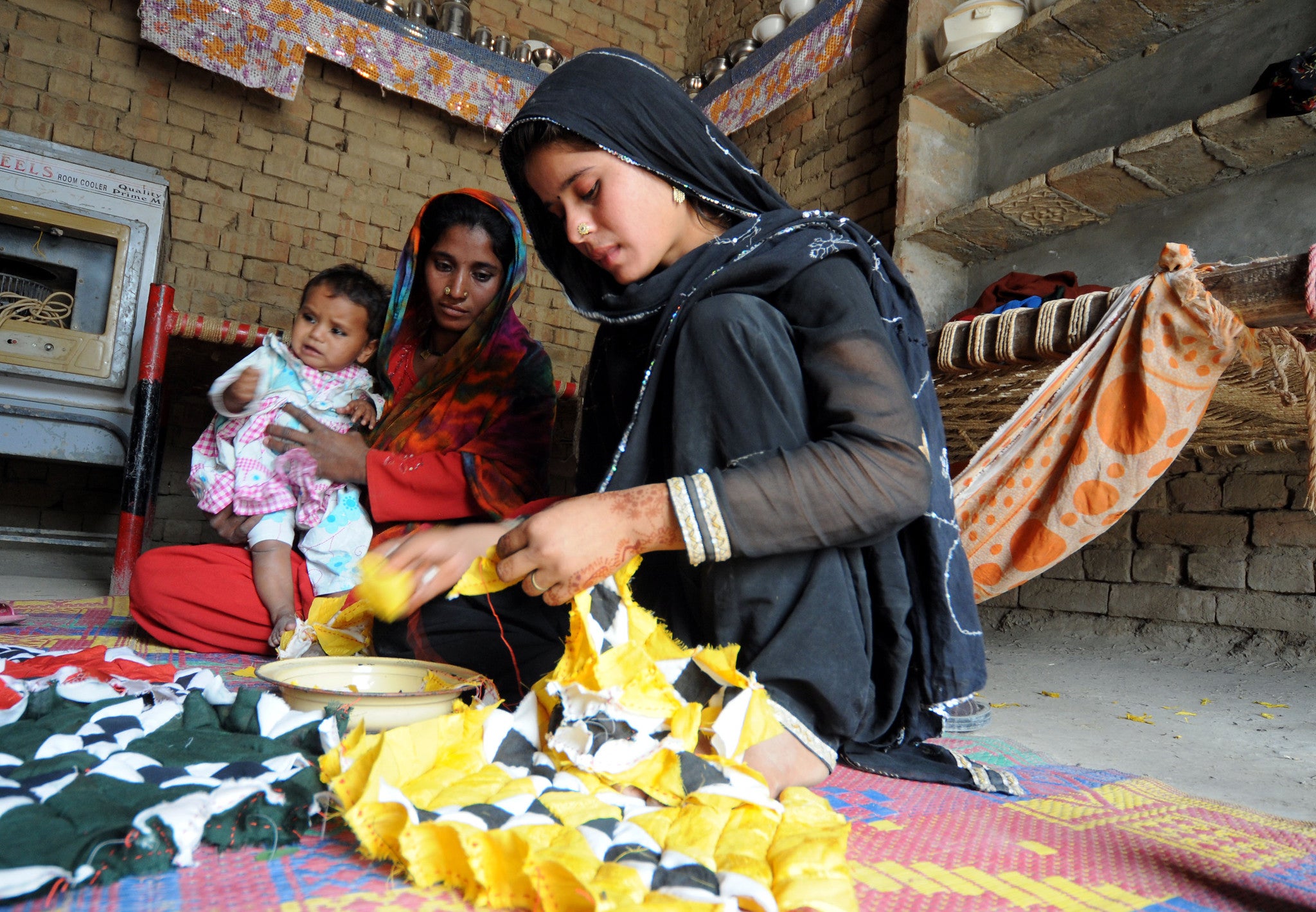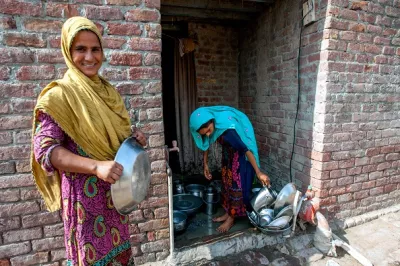COVID-19 Testing Resilience of Informal E-Commerce in Pakistan
Before COVID-19, Zenab Khalil was selling organic skin-care products over social media from her home in Karachi, Pakistan. Her sales took a big hit as a result of the pandemic, but thanks to her low-cost online business model and storage-friendly products, she was able to absorb the losses. Zenab adapted to her rapidly changing environment by introducing a more in-demand product to sell online: her own brand of affordable hand sanitizer, a scarcity in the local Pakistani market. Selling sanitizer online enabled her to contribute to the pandemic response while making up for lost income, even boosting sales of her existing product line.
“Our customers know that this is our livelihood. There’s been a general wave to support small businesses like mine, and I’m grateful for it,” she said.

Zenab is far from Pakistan’s only woman micro-entrepreneur whose online business has helped her weather the COVID-19 storm. In 2019, CGAP launched exploratory research into the growing phenomenon of women participating in informal e-commerce throughout Bangladesh, Myanmar and Pakistan. After interviewing over 150 women entrepreneurs and 20 industry experts in these countries, we found that women are heavily involved in informal e-commerce and that this type of e-commerce often enhances women’s livelihoods while deepening their use of digital and financial services, such as mobile wallets and online banking. Ultimately, we found that that informal e-commerce can be a path to financial inclusion and economic independence.
As stories like Zenab’s illustrate, the COVID-19 pandemic has underscored one of the main reasons why informal e-commerce has long been on the rise among women in Pakistan and elsewhere: it is adaptable and resilient in the face of shocks.
Adaptability and resilience are especially important features for women in Pakistan, who have restricted mobility and limited access to educational and work opportunities. They live uncertain economic lives, often forced to depend on family patriarchs for economic support. As women are more likely to bear domestic responsibilities and undergo lifestyle changes than men, formal work, including formal e-commerce, does not offer them the flexibility they need to thrive in their business endeavors. Pakistani women also lack access to formal services, assets and investments to launch traditional brick-and-mortal style businesses.
The informal e-commerce model enables women to modify their schedules from day to day while minimizing operational costs. The fact that informal e-commerce doesn’t require women to pay rent or wages can also help them absorb interruptions in business. During COVID-19, informal e-commerce businesses in Pakistan were able to resume operations much earlier than formal businesses and quickly adopt contactless delivery and online banking services, despite the country’s deeply engrained cash-on-delivery culture. Indeed, anecdotal evidence suggests that the informal e-commerce trend has only accelerated this year, with many new ventures arriving on the scene.
But what exactly makes informal e-commerce so adaptable and resilient in the face of COVID-19 and other shocks? The table below breaks down some of the key features that we have identified in Pakistan.
None of this is to say that women do not need greater opportunities in formal entrepreneurship. Informal e-commerce can have drawbacks. For example, most informal e-commerce businesses in Pakistan are gendered in that they deal with traditionally feminized skills and products. These women-dominated businesses are often undervalued and trivialized, which makes it harder for women to raise investments and be recognized as “real” business owners. There is also a risk that home-based, informal work could reinforce patriarchal norms by restricting women’s mobility or disincentivizing the formal sector from addressing women’s unique workplace needs.
It is also important to recognize that despite the ways informal e-commerce is helping some women to navigate COVID-19, many of these entrepreneurs have been hit hard by the pandemic. One of the people we’ve spoken to since the pandemic began is Shahnaz Raja, a facilitator at a community-run craftswoman collective in the city of Multan. The collective includes weavers, tailors and embroiders, most of whom have seasonal business models and rely on annual exhibitions or peak demand periods, such as holidays or wedding season, to sell their products.
Shahnaz said most of the workers are experiencing declines in household income, as their sales drop and male family members’ jobs become less secure. To help close the gap, the craftswomen in the collective are selling personal protective gear like masks and hazmat suits through WhatsApp. While the women feel proud to be helping frontline workers and seeing how their skillsets can be applied to other markets in the future, the work is minimal and profit margins are low.
However, the adaptability and resilience of informal e-commerce is helping many women. Another entrepreneur we spoke with, 18-year-old Aleeha Shah, became a business owner for the first time in March when she opened an online bakery. As a student, the ability to bypass any need for investment made this possible for her. By selling baked goods over Instagram, she’s been able to earn income from what was once just her favorite hobby. After three months, Aleeha’s venture saw considerable success even though she had to close shop when COVID-19 cases rose in her area.
When asked why customers are ordering baked goods from her despite fears about COVID-19, she added that people have a desire for normalcy. “I think my cupcakes allow a temporary return to the normal without the added exposure of going out and endangering staff who cannot work from home unlike me,” she said.
Like the rest of the world, COVID-19 is not gender-neutral. Even with the partial gender-disaggregated data available today, we can see the pandemic affecting women disproportionately. UN Women reports that in Pakistan, fewer women than men receive the necessary information to prepare for COVID-19 and are more likely to suffer from deteriorating mental health as a result of the crisis. A local NGO warns against the alarming spike in domestic violence against women during COVID-19 lockdown measures.
Informal e-commerce has made a difference for many women by providing a continued source of livelihood and access to digital and financial services. In Pakistan and beyond, the informal e-commerce phenomenon among women — and its continued growth during COVID-19 — points to the importance of the digital economy for women’s financial and economic inclusion.




Add new comment